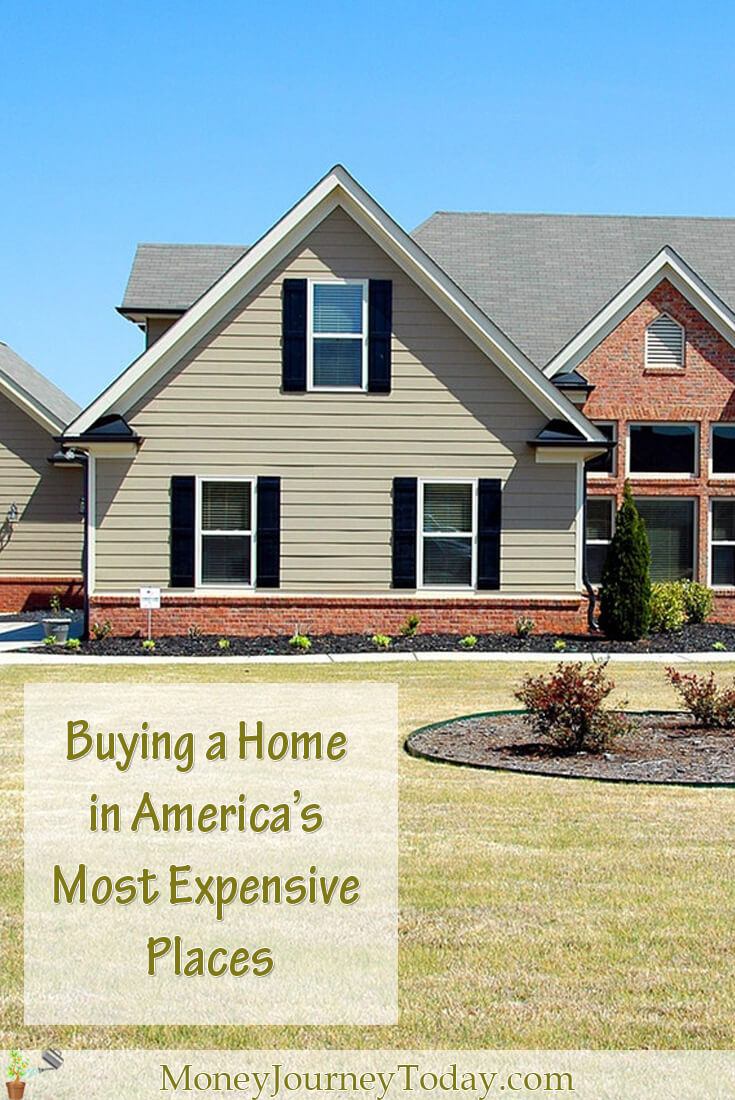There are plenty of articles telling home buyers the best and worst places to buy a new home, but rarely do they provide any support or advice to those forced to invest in areas that are less than financially ideal.
If you could drop everything and move to Maine, Iowa, or Arkansas for their low property taxes, lower home prices, and rock-bottom costs of living, surely you would.
However, you aren’t likely to choose your region of residence based on the cost of owning a home; more likely, your decision is influenced by your job, your family, and your cultural needs and interests.
Thus, rather than advertising how much you could save by relocating to far-flung regions of the U.S., it is more prudent to explain how you can make do with what you have in the place you already have it.

Most Expensive Cities and States
If you don’t have rock solid finances, you might struggle to find an affordable home no matter where you live. However, if you are looking for property in and around the following cities and states, you might endure an especially disheartening home search:
New Jersey. New Jersey boasts some of the highest property taxes in the nation, not to mention higher-than-median home prices. Thankfully, home equity loan rates in NJ are relatively reasonable, especially from online lenders.
New York City. Meanwhile, across the river, NYC claims even higher home prices and property taxes — plus, home values seem to be falling. Thus, buyers might need to remain in their properties for longer to see a return on investment.
West Virginia. Surprisingly, West Virginia claims the highest mortgage rates of any state, which forces homeowners to pay almost $10,000 more per $100,000 loan over the course of a 30-year mortgage. Despite the low cost of living, WV is expensive for homebuyers.
Seattle. Though the median income in Seattle is a comparatively high $83,476, more than 57 percent of residents cannot afford to purchase property. The median listing price for a home in the city soars at over $688,000.
California. Given that a resident would need more than seven times the median income to afford a median-priced home in California, it is hardly surprising that property in Cali seems unattainable. Indeed, renting seems more economical to most, and accordingly, the state’s price-to-rent ratio is one of the highest in the nation.
Houston. Hurricane Harvey hit this city where it really hurts: house prices. Yet, even after the natural disaster caused home values to plummet, roughly 60 percent of Houstonites still cannot afford a home because median incomes are relatively low.
Better Ways to Afford a Home
When you say you can’t afford a home, you could mean several different things. For example, you could mean that you lack the standard down payment, you don’t have enough income to make payments, or your credit isn’t right for a good loan.
Fortunately, there are solutions to all these problems and more, so you can acquire property of your own no matter where you live.
Problem 1: You don’t have money for a down payment.
The standard down payment is 20 percent. This will qualify you for most mortgages and get you out of paying mortgage insurance.
However, if you don’t have thousands of dollars saved up, you can skirt the 20 percent rule by participating in housing programs that support buyers like you.
For example, you can acquire an FHA loan, use military veteran perks, or buy a HUD home. Alternatively, you can engage in aggressive money-saving tactics, like postponing an expensive wedding or pulling from a retirement account.
Problem 2: Your credit is poor.
Bad credit is worse than low income when it comes to acquiring a home loan. If you can wait a year or so to do a major credit renovation before you buy a home, you should.
Otherwise, you should be aware that not all lenders will be willing to work with you.
You should seek out institutions that have reputations for supplying loans to those with bad credit — and in the meantime, you should avoid acquiring new sources of debt.
Problem 3: You prefer homes outside your price range.
This is primarily a problem with your attitude. It is easy to watch real estate shows and fall in love with mansions and top-tier renovations, but you need to be realistic about what you are likely to acquire in your area with your budget.
You can use online affordability calculators to get a better grasp of how much you can spend on a home, which will help you avoid becoming too attached to properties that are way too expensive.
[…] Buying a new property should be a fairly straightforward process: you find your dream home at a great deal, sell your old property and then move into your new abode. […]
[…] borrow money to purchase a property, buy a car, pay for college tuition, spend money on weddings, travel or go on vacations, buy […]